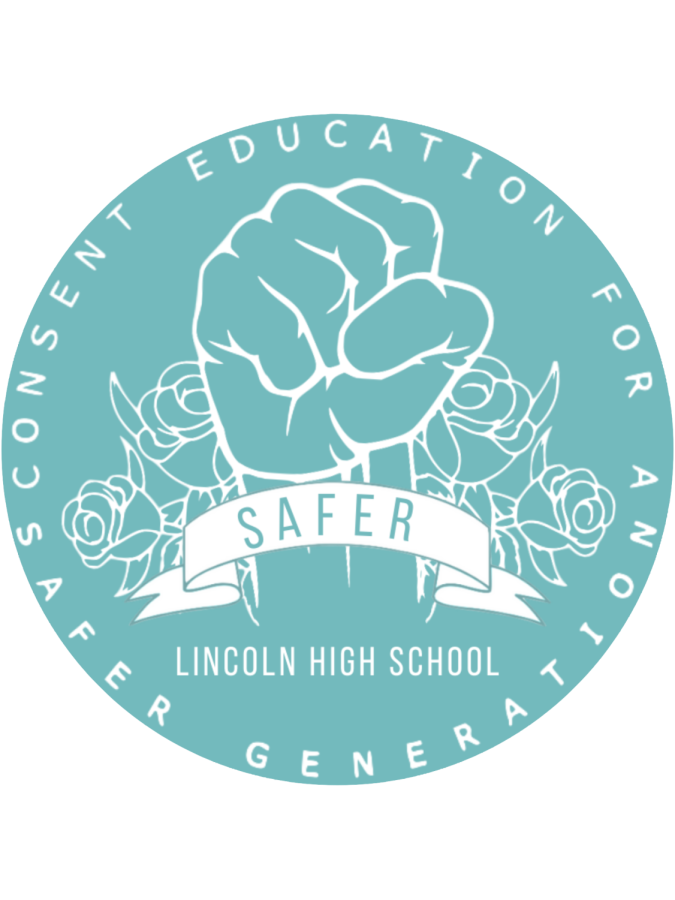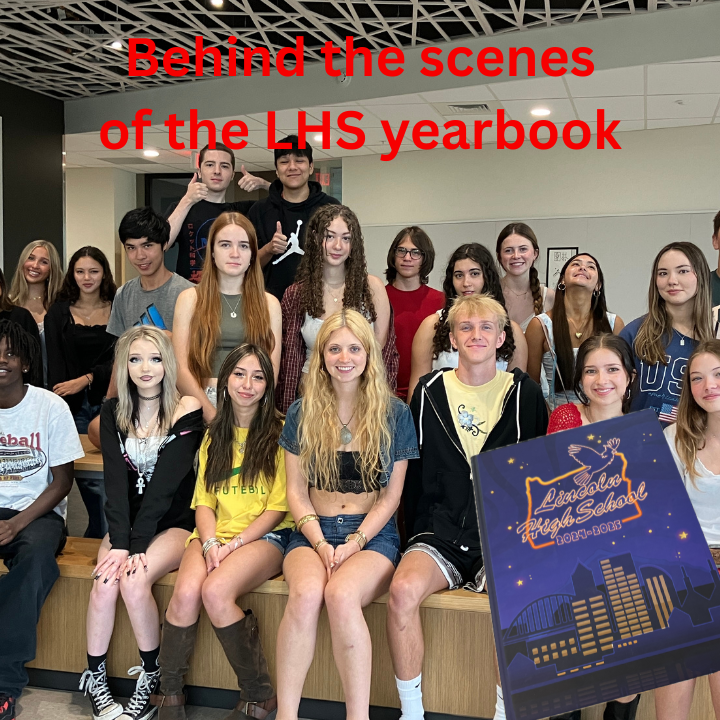SAFER reflects on Erin’s Law presentations
May 2, 2022
Starting this month, Lincoln enacted a series of school-wide presentations that will continue over the course of the next few weeks. The presentations are an effort to be in compliance with Erin’s Law, which was passed by Oregon’s legislature in 2015 and mandates that each school district’s board adopt a prevention-oriented child sexual abuse instructional program for students in kindergarten through twelfth grade.
It has taken seven years for these presentations to happen.
Students Active For Ending Rape (SAFER) was founded by students at Lincoln over six years ago as a way to combat rape culture, provide support for survivors and to promote consent culture. Over the years SAFER has expanded to other schools. Ida B. Wells High School, Grant High School and Oregon State University have started their own chapters.
Due to the lack of school-led conversations surrounding sexual violence, SAFER took the initiative to annually provide consent lectures to all grades at Lincoln, and sometimes even 8th graders at West Sylvan Middle School. Lectures were individually designed for each grade level, i.e. ninth graders received a presentation on the basics of rape culture and consent culture and twelfth graders received a presentation about sexual violence on college campuses.
We have not been able to present our consent lectures this year to all grades, and likely will not be able to. In the past, SAFER has organized presentations in all English classes because it is the only class required for four years. Yet, this year, we have faced hesitance and resistance from many teachers who did not want to give up additional class time for these lectures. As a result, we SAFER leaders have mixed feelings about the presentations that the school has been providing. We are glad that the labor of teaching about this subject matter is no longer solely on SAFER as a student-led club, but we would still like the opportunity to carry out our own lectures due to the minimal education surrounding consent.
At our meeting following the first Title IX presentation, members of SAFER shared their concerns about how the presentations were structured. In the first presentation, the term consent was never explicitly defined, despite being the foundation of promoting consent culture. There was also no acknowledgement of rape culture, or current areas that need improvement at Lincoln. In order to enact significant change, we must educate others on the basis of these issues and where they stem from. In addition, there was confusion surrounding reporting systems. Members expressed that there was not clarity in how mandatory reporting functions, compared to Title IX reporting.
There were also disparities in accessibility as the only presentation provided was in English. Spanish teacher Trevor Todd has a class with students of a predominantly Spanish-speaking background, and has translated the presentations himself.
Erin’s Law states that “program instruction may be delivered by instructors including teachers, school counselors and outside agency prevention educators, provided the instructors have knowledge of and training in child sexual abuse prevention.” Lincoln is having teachers carry out the presentations, and while Erin’s Law states that this is permitted, we strongly believe that people who are thoroughly trained in this subject material should be delivering the presentations.
Instead, the implementation of these presentations felt last-minute and it seemed like teachers were given very minimal time to prepare for a topic that requires immense care. Some students had substitute teachers, and reported to SAFER that they did not receive any presentation at all.
As Lincoln continues to implement these presentations, we hope to see further actions and improvements to support the well-being and safety of survivors of sexual violence. We would like for there to be changes enacted beyond the purpose of being in compliance with a law. In order to truly fight against the overarching and pervasive rape culture that is prevalent in our institutions and belief systems, consent education must be prioritized and handled with appropriate care.
As a school, Lincoln needs to be held accountable for its lack of adequate response in addressing sexual harassment and sexual violence. Title IX has the potential to be a powerful form of protection for students, but only if it is integrated properly.
Note: Skylar DeBose is both a SAFER leader and reporter for The Cardinal Times.




